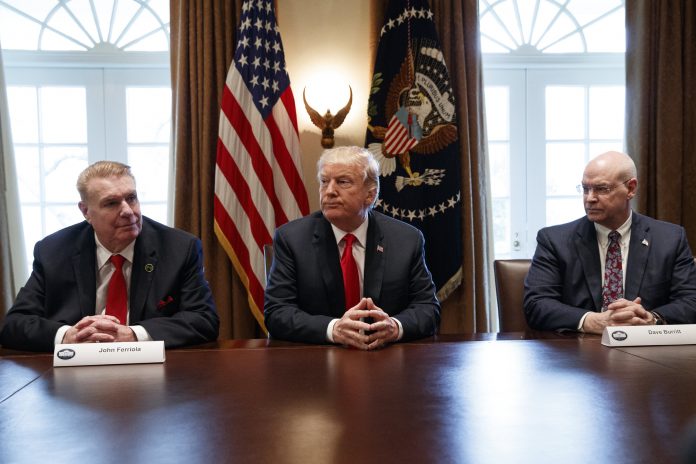US President Donald Trump’s escalating tariff policies are raising alarms about a potential global recession, with major financial institutions warning of severe economic repercussions both in the US and around the world.
Intended to protect American manufacturing and reduce the trade deficit, these tariffs are triggering sharp reactions from global markets, leading to a widespread economic slowdown.
JP Morgan, one of the world’s largest investment banks, has revised its US growth forecast for the year, now predicting a contraction of 0.3% in real GDP, down from its previous estimate of 1.3%.
The bank cites the impact of the tariffs as a primary factor in this downturn, as the global stock market has taken a significant hit, erasing billions in value from major US companies.
JP Morgan’s warning underscores the potential for higher unemployment, with projections suggesting nearly 2 million additional job losses across the US.
The effects of these tariffs extend beyond US borders. China has retaliated with its own set of tariffs, raising import charges on US goods by 34%.
This action has fueled fears of a tit-for-tat trade war that could trigger a global recession. As both the US and its trading partners impose increasingly severe tariffs, the global economic outlook has grown more uncertain, with markets reacting negatively to the unpredictability of future trade relations.
In the UK, the economic impact is also becoming more evident. While the UK’s service-based economy is less directly affected by tariffs, analysts warn that the ripple effects of a global recession could still stall growth.
Reduced demand from major economies like the US and China could hurt UK exports, further weakening an already fragile financial landscape. Inflationary pressures are also a concern, as disrupted supply chains and higher tariff costs could lead to price hikes for consumers.
Some UK businesses are already adjusting to the new trade realities. Companies like JCB are ramping up US production to avoid tariffs, but many smaller businesses could struggle to navigate the shifting market dynamics.
The broader effects of Trump’s tariffs are still unfolding, and experts caution that a full-blown recession is becoming increasingly likely if the trade conflict continues to escalate.
As global markets brace for further turmoil, the economic fallout from Trump’s tariff policies may soon become a defining feature of the global economic landscape, with experts predicting deeper recessions and financial instability worldwide.




